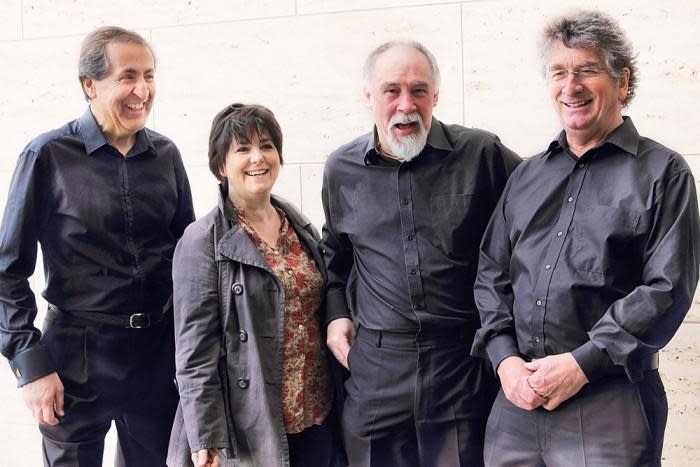Chilingirian Quartet/Andrew Brownell/Sarah Pring, review: Richly rewarding

Located at the magnificent Lutyens church of St Jude-on-the-Hill in Hampstead Garden Suburb, the Proms at St Jude’s this year celebrates its silver jubilee. Over that quarter of a century the festival has earned the loyal support of the local community and raised close to a million pounds for excellent causes.
Letters from Lony, commissioned by the festival from Ron Corp and receiving here its world premiere, is a work that speaks powerfully to that community. A setting of letters from a Jewess based in Nazi-occupied Amsterdam, Leonie (Lony) Fraenkel, to her infant grandson, Peter Lobbenberg (who now lives in the Suburb), it unfolds a story of the writer’s removal from her home to the Westerbork transit camp, to Theresienstadt and thence to Auschwitz. Lony never lived to see her grandson.
Scored for soprano, piano and string quartet, the work is essentially conversational – we hear about the ping-pong club upstairs, a bathtub crocodile that squirts water and other everyday matters that feature in family letters – though Corp succeeds in darkening the tone somewhat in a series of four interludes. Some of the most impassioned outbursts also occur when Lony is signing off and sending her love, always possibly for the last time, to her family in London.
At over seventy minutes, Letters from Lony might have benefited from a more radical pruning, but Corp’s word-setting is unfailingly felicitous, even if the epistolary banalities make it hard for him to achieve the consistently heightened expression the subject seems to deserve. Sarah Pring projected the text clearly and her processing down a darkened nave at the end, crooning a lullaby, was an inspired piece of staging.
The instrumentalists were the Chilingirian Quartet and pianist Andrew Brownell, who in the first half delivered a performance of Brahms’s Piano Quintet in F minor that was neither technically flawless nor as crisply articulated as it might have been, but nevertheless both revealingly introspective and richly rewarding.

 Yahoo News
Yahoo News 
